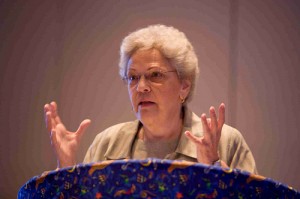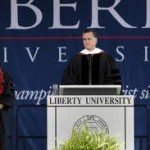I learned earlier this week that one of my professors from graduate school passed away. Dr. Ada María Isasi-Díaz was Professor of Theology and Ethics at Drew University where I earned my PhD. She taught the first class in my doctoral program in Christian Social Ethics, and I had her for my last class. I remember my interactions with her like they were yesterday: she was warm, gracious, humorous, always thinking, and one whose scholarship served the cause of justice in the world. Here’s what I learned from her:
- That we must think theologically and ethically about power. I was accepted at Drew after a particularly bruising experience on the staff of an evangelical church after graduating from seminary. I learned that theology can quickly become ideology when it justifies and maintains the power and privilegeof the few. My first class with Professor Isasi-Díaz was “The Ethics of Power.” She gave me a way to understand what I had experienced and observed, as well as a way to help identify abusive power, especially in religious contexts. Moral reflections on power are now part of my courses at Ashland Theological Seminary.
- That theology and ethics need a “home.” Many know her personal story. Her family came to the US from Cuba when Castro came to power. I remember her talking about “exile” and its impact on how we do theology. One of her examples was the difference between the theologies of Paul Tillich and Dietrich Bonhoeffer. During World War II, Tillich opted to remain in the US while Bonhoeffer returned to Germany. Professor Isasi-Díaz wondered if the abstract nature of Tillich’s theology was due to this lack of “place,” which is in contrast to the painful concreteness of Bonhoeffer’s theo-ethic, eventually resulting in his execution. I learned from her that theology and ethics must always have particular faith communities in mind to keep us from abstract platitudes lobbed from podiums and pulpits. Theology and ethics must be done in service to God and to others. We need to have a “home,” a “place,” from which we “do” theological and moral reflection.
- That “staying put” is harder than fleeing. Professor Isasi-Díaz was deeply committed to her Catholic faith, and had no intention of leaving the church she loved. This is amazing to me as an evangelical Protestant, where there are lots of “shuffling saints” moving between churches to get what they want. She was an advocate for the ordination of women in an ecclesial community where it seems this won’t happen any time soon (or ever). But these were “her people,” and her life was deeply bound with her church community. Professor Isasi-Díaz helps me to remember “my people,” and that staying put is often a matter of trust in God and courage to stick with them.
- That justice is a matter of Christian spirituality. Through Professor Isasi-Díaz, I was exposed to Catholic Social Teaching for the first time in my life. I realized we shared so many affinities and commitments, in spite of my evangelical heritage and her Catholic one. A piece that tends to be missing in evangelical spirituality is the commitment to “doing” justice as a matter of true worship and piety. She remarked in one conversation, “When I carry a protest sign, I also pray because praying is protesting, and protesting is praying.”
May Ada María Isasi-Díaz now know the full, merciful, gracious, redemptive, life-giving justice of God.












